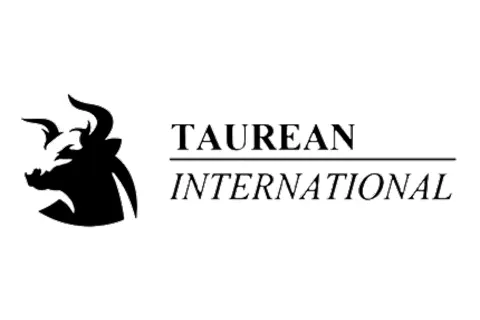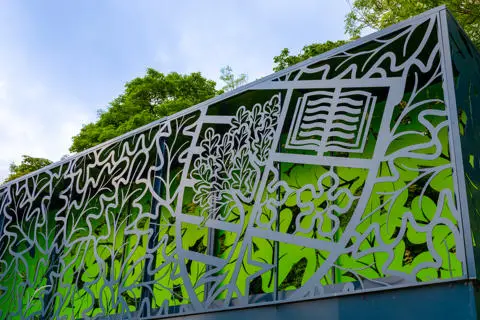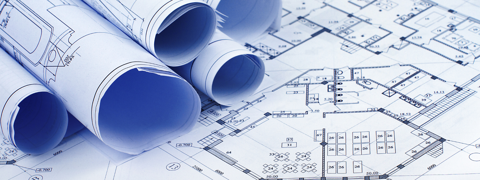Key information
Shape the future of sustainable building design with Heriot-Watt’s online MSc Building Services Engineering. Study flexibly from anywhere in the world and gain the technical, analytical and leadership skills to excel in modern construction and low-carbon design.
- Level
- Postgraduate
- Delivery type
- Self-paced
- Degree qualification
- MSc
- Location
- Online
- Duration
- Flexible
- Start date
- September, January
Programme overview
Ranked 1st in Scotland and 3rd in the UK for Building (Times and Sunday Times Good University Guide, 2025), Heriot-Watt University is a global leader in sustainable design and construction education.
This MSc focuses on low-carbon building design and the integration of renewable energy systems, addressing the key sustainability and performance challenges facing today’s construction industry. Designed for engineers, architects, project managers, and professionals from technical or scientific backgrounds, it equips you with the knowledge to deliver efficient, environmentally responsible building solutions across sectors and geographies.
1st
1st in Scotland for 8 years in a row, 1st in the UK (The Times/Sunday Times Good University Guide 2026)
Industry
Learn from industry. Guided by an Industry Advisory Panel including senior CIBSE members and global consultants.
Designed
Design for sustainability. Focused on low-carbon systems, renewables, and smart energy integration in buildings.
Gain advanced skills to design, manage, and optimise energy-efficient buildings that meet global environmental targets. You’ll learn from world-leading researchers and industry practitioners to bridge theory with professional application.
By studying this MSc Building Services and Engineering, you will:
- Master the principles of building services and architectural engineering.
- Design and assess low-carbon and renewable energy systems.
- Develop advanced data analysis and modelling skills using industry-standard software.
- Apply sustainable development and carbon management practices to real projects.
- Strengthen leadership and management capability for senior technical roles.
Start with just one course
We’ve made it simpler than ever for you to start your MSc. With performance-based admission, you only need to pay for and then pass your first course in Stage One to join the programme. No barriers. Get started today.
Enrol nowStudent experience
Heriot-Watt University is a pioneer in sustainable construction research and teaching. This programme is delivered through the Royal Academy of Engineering Centre of Excellence in Sustainable Building Design – part of a UK-wide network promoting innovation and best practice in the built environment.
Our academic staff are internationally recognised for expertise in energy efficiency, water management, and environmental modelling, working closely with government and industry. The MSc is led by faculty engaged in multi-million-pound research programmes including the EPSRC Energy Systems Integration project and Adaptation and Resilience in a Changing Climate (ARCC) initiative.
Course content
The MSc comprises eight taught courses and a research dissertation (180 credits in total). You’ll take one core course, as well as a dissertation, and choose seven optional courses, allowing you to specialise in technical, environmental, or managerial pathways.
Core courses
- Design of Low Carbon Buildings
Optional courses
- Climate Change, Sustainability and Adaptation
- Energy Systems and Buildings
- Building Electrical and Lighting Services
- Ventilation and Air Conditioning
- Thermofluids
- Modelling for Sustainable Building Design
- Water Supply and Drainage for Buildings
- Strategic Commercial and Contract Management
Dissertation
- Dissertation (Architectural Engineering Discipline)
Study at your own pace
Our flexible online model allows you to study wherever you are in the world, while continuing to work and apply new knowledge in your role. Complete your MSc in as little as 2 and a half years or spread your studies over a longer period to suit your commitments.
Apply nowProgramme video
MSc Building Services Engineering Graduate Akshay Kumar Annadata
MSc Building Services Engineering graduate Akshay Kumar Annadata talks about their studying online with us.
Student testimonials
I feel like I’ve gained a lot of knowledge and I am able to perform my job at a much higher level.
Our teaching faculty

Fees and funding
Tuition is available on a pay-per-course basis.
| Per course | Dissertation | Full programme |
| £1,570 | £2,030 | £14,590 |
The tuition fees listed are applicable for 2026. Fees include one assessment attempt and may increase annually. Find out more about our tuition fees.
Funding opportunities
Pay Per Course
All our programmes offer the flexibility to pay course-by-course, allowing you to spread the cost of your tuition over the lifetime of your studies.
20% Alumni Discount
If you are a Heriot-Watt alumnus, you qualify for 20% off your programme fees. For more information on how to claim your alumni discount contact hwonlineapps@hw.ac.uk.
Employer Sponsorship
All our programmes offer the flexibility to pay course-by-course, allowing you to spread the cost of your tuition over the lifetime of your studies.
We're here to support you
If you have questions or need help with enrolment, complete our quick enquiry form and an Enrolment Advisor will be in touch.
Contact usEntry requirements
We have standard entry requirements for all of our courses that you will have to meet.
We welcome applications from graduates and professionals with backgrounds in engineering, construction, architecture, project management, or related disciplines.
Standard entry requirements
- Minimum 2:2 honours degree (or equivalent) in a cognate subject, or
- Corporate or Chartered membership of a relevant professional institution.
Alternative entry (PG Diploma level)
- Third-class degree in a relevant subject plus 2+ years’ professional experience, or
- Cognate ordinary degree plus 3–4 years’ relevant experience.
English language requirements
If your first language is not English, or your first degree was not taught in English, we'll need to see evidence of your English language ability.
The minimum English language requirement for entry to this programme is IELTS 6.0 (or equivalent) with no score lower than 5.5.
If you do not have IELTS 6.0, we offer a range of English language courses to help you meet the English language requirement for this programme prior to commencing your studies.
Why Heriot-Watt
We're the top university in Scotland for graduate outcomes and 5th in the UK, which means that more of our graduates are employed or in postgraduate education than any other institution in the country. We're also ranked 1st in Scotland for producing CEO and MDs (Novuna Business Cash Flow 2023).
We're Scotland's most international University, with five global campuses and a global community of 60,000 online students and alumni from over 158 countries. Our online programmes are designed and developed by the same faculty who teach on our global campuses - expert academics and leaders in research and innovation who work alongside industry to find solutions to some of the world's most pressing challenges.
Together, we shape your future.
1st
1st in Scotland for 8 years in a row, 1st in the UK (The Times/Sunday Times Good University Guide 2026)
Accredited
Accredited by CIBSE and EI, professionally recognised for progression toward Chartered Engineer (CEng).
Research
Research-led teaching. Taught by experts shaping the future of sustainable construction.
Employability
With our flexible model you can earn while you learn, build your CV, and apply new skills right away. Get free access to 500+ industry credentials and dedicated Careers Service support.
Your Online experience
Explore Heriot-Watt Online as a student
Speak to an Advisor
Our Enrolment Advisors are here to help you explore your options, entry routes, and how online study can fit around your life.
Book a call









